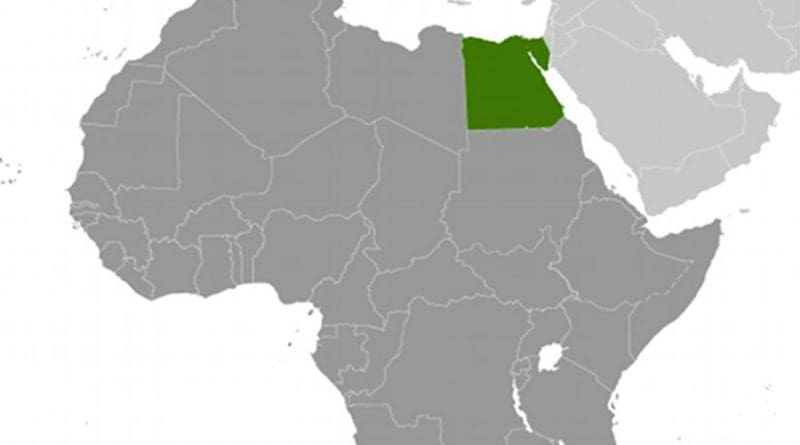Egyptians Celebrate Mubarak’s Exit From Power
By RFE RL
(RFE/RL) — Egyptians have woken to a new chapter in their country’s history following the ouster of President Hosni Mubarak, who ruled Egypt with an iron fist for 30 years.
Morning prayers were held in Cairo’s Tahrir Square — the epicenter of nearly three weeks of mass antigovernment protests — after a night of celebrations.
The sound of horns honking in jubilation could still be heard in the streets of Cairo this morning.
“The Revolution Of Youths Forced Mubarak To Leave,” Egypt’s “Al-Ahram” newspaper emblazoned on its front page.
“The Jan. 25 Revolution Won. Mubarak Steps Out And The Army Rules,” said the official “Al-Gomhuria” newspaper.
While large crowds still remain on Tahrir Square, the military has begun removing metal barriers and barbed wire that surrounded the square during 18 days of rallies against poverty, corruption, and repression.
The 82-year-old Mubarak is the second Arab leader to be overthrown by a popular uprising in a month.
Vice President Omar Suleiman said a military council would run the most populous Arab country for now.
Praise for the Egyptian people has streamed in from around the globe.
“There are very few moments in our lives where we have the privilege to witness history taking place. This is one of those moments. This is one of those times,” Obama said. “The people of Egypt have spoken, their voices have been heard, and Egypt will never be the same.”
UN Secretary-General Ban Ki-moon praised the courage of the Egyptian people.
“I commend the people of Egypt for the peaceful and courageous and orderly manner in which they have exercised their legitimate rights,” Ban said. “I call on all parties to continue in the same spirit. The United Nations stands ready to assist in the process.”
The crisis that brought down Mubarak was the worst since British-backed King Farouk was toppled in a military coup in 1952.
Generals have ruled ever since, although Mubarak and his predecessor, Anwar Sadat, rarely appeared in uniform and kept active-service officers in the background.
Behind the celebrations, some analysts question how far the armed forces under Field Marshal Muhammad Hussein Tantawi — Mubarak’s veteran defense minister — are ready to permit democracy.
Al-Arabiya television said the army would soon dismiss the cabinet and suspend parliament.
The head of the Constitutional Court would join the leadership with the military council.
Meanwhile, there are signs the revolutionary mood that led to the ouster of Mubarak and Tunisia’s Zine El Abidine Ben Ali is beginning to be felt elsewhere in the Arab world.
In the Algerian capital of Algiers, police security is high ahead of a planned pro-democracy march today organized by an umbrella group of trade unions, rights activists, and left-wing parties.
Opposition groups in Bahrain are calling for street rallies on February 14 to protest discrimination against minority Shi’as by the kingdom’s Sunni rulers.
A state news agency in Kuwait has reported that authorities have banned the organization of any gatherings, marches, or rallies after Friday Prayers, calling on people “to put the interests of the homeland above all considerations.”
Earlier in the week, Jordan’s new prime minister promised to continue political reforms demanded by protesters who forced King Abdullah to reshuffle the cabinet.
And in a rare challenge to the absolute power of the ruling dynasty in Saudi Arabia, a group of opposition activists said they had asked the nation’s king for the right to form a political party.

